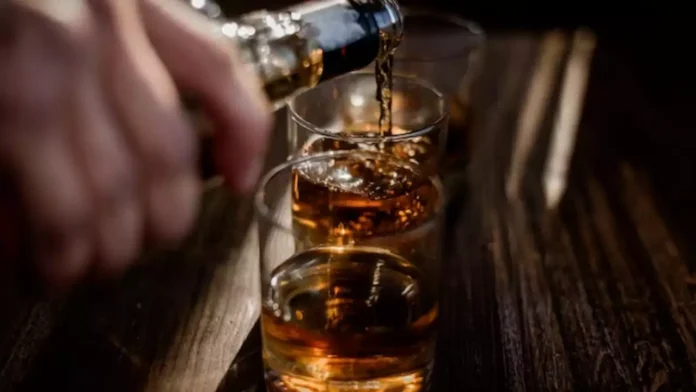The substantial rise in the disposable incomes of Indians has spurred significant growth in the alcobev sector within the country. According to the International Spirits & Wines Association of India (ISWAI), the alcobev industry in India is set to touch $64 billion by 2030.
The sector provides employment opportunities, both directly and indirectly, to an astounding 7.9 million individuals in India, as stated in the report titled “Economic Value of the Indian Alcoholic Beverage Industry” by ISWAI.
The country’s burgeoning middle class is also driving significant premiumization in the sector as demand for premium liquor is surging. Additionally, according to experts, Indian alcobev producers have not only met the colossal domestic demand but have also established a significant global presence.
Continue Exploring: India’s alcoholic beverage market surges to record highs, premiumization and home consumption drive growth
“The Indian beverage sector has changed its focus over the last ten years from producing just in India to developing products especially for the Indian market. Nowadays, discerning consumers are searching for products with Indian heritage. The emphasis has switched over the past two years to “Made for India” and “Made in India for the world,” particularly since the COVID-19 outbreak,” according to Kunal Vasudeva, co-founder and managing director of the Indian School of Hospitality.
“For the past 3-4 years, the leading single malt globally has hailed from India, while the finest infused gins are also crafted in India for international markets. Additionally, Bira now exports to the Middle East from India, meaning that 10-15% of all ‘Made in India’ products are also ‘Made for the World,’ remarked Mr. Vasudeva.”
Experts also assert that the entire industry is experiencing a significant upheaval across various sectors, including supply chain, cold storage, manufacturing, logistics, and consumer behavior.
In response to these shifting trends and to provide global travelers with unparalleled experiences, esteemed hospitality institutions are also establishing international partnerships with leading hospitality education institutions.
“We are a member of Sommet Education, and we have strategic partnerships with Les Roches & Ecole Ducasse across Europe. International faculty members join ISH to improve the learning experience and provide a global perspective. Furthermore, our students have the option of moving to Les Roches and Ecole Ducasse, where they can get an extra degree and take advantage of worldwide placement prospects,” added Vasudeva.
Adapting to the shifting landscape of the alcobev sector and addressing the preferences of contemporary travelers, prominent hospitality education institutions like the Indian School of Hospitality are introducing initiatives such as the Concocting Conclave. These events serve as platforms for aspiring beverage managers to grasp the nuances and evolution within the beverage industry.
Continue Exploring: Indian alcoholic beverages industry set for margin improvement and sales surge in FY2025: ICRA
The National Education Policy (NEP) 2020 facilitated the globalization of education by permitting foreign universities to establish their International Branch Campuses (IBCs) in India. This development is mutually beneficial for Indian students and foreign educational institutions, as the establishment of IBCs contributes to the improvement of higher education quality in India.
“Presently, India is bolstering the entire Middle Eastern hospitality sector. With a keen understanding of international tourists’ and consumers’ preferences, Indian students can enhance guest experiences. Just as India exported its IT expertise, in the coming five years, we aim to export hospitality worldwide,” Vasudeva elaborated.





